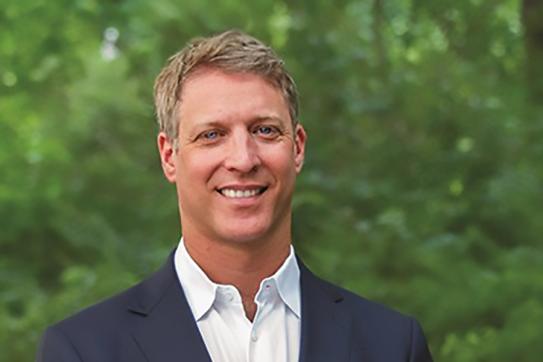Ron Gonen ’04 is founder and CEO of Closed Loop Partners, an investment firm focusing on businesses in the circular economy. After graduating from college, he worked as a management consultant for several years but always knew he’d eventually form his own business at the “intersection between maximizing returns and maximizing sustainable business practices.”
While at CBS, he started his first business, Recyclebank, which rewards people for recycling with points redeemable at major retailers. In 2014, he launched Closed Loop Partners, making venture capital, growth equity, and private equity investments in companies around the world that are helping to build a circular economy. Among his many achievements, Gonen was recognized by the United Nations Environment Programme as a “Champion of the Earth.”
Gonen recently joined the Lang Entrepreneurship Center’s Startup Alley podcast and shared his thoughts on what makes for a good entrepreneur, what the future holds for the circular economy, and why there’s reason to be optimistic rather than cynical. Here are a few of the highlights.
Selective Blindness Can Be an Entrepreneurial Superpower
Despite having had “plenty of failures” himself, he’s always sure a new venture is going to work. Every entrepreneur will face roadblocks and hurdles.
“If you stare those obstacles in the face, they’re too big,” Gonen says. “You’re not going to see any light. But if you just simply don’t see the obstacles, then you keep moving. And in many cases, those obstacles aren’t physical walls. They’re actually just metaphysical walls or imaginary walls that society tells you are there.”
Values Add Value
The most essential thing Gonen has learned in his entrepreneurial career is that it’s critical to surround yourself with good people, from employees to investors to partners. It’s important to get to know who they are outside of a conference room and understand their views of the world — observing how they treat wait staff, for instance. Fortunately, in Gonen’s experience, good people aren’t rare.
“In my line of work, I’ve had the pleasure of meeting people of significant wealth,” he says. “It’s always interesting for me to see how many of them are … private and very humble and extremely philanthropic,” he says. “I think there’s more of that than the common MBA student realizes, because what we’re oftentimes spoon-fed by the financial press is that in order to get rich you gotta be a jerk and you gotta play the winner-takes-all game. And that’s just not the case.”
The Future of the Sustainable Economy Is Transparency
Transparency is key to creating better economic systems, ones that serve society and not entrenched interests. Businesses are already becoming more open about their operations, and today, it’s easier than ever to know what’s in a product, where it was made, and what its carbon footprint is. But there’s more to do: Even the simple act of disposing of your soda can is unnecessarily opaque, a fact Gonen says helps line the pockets of landfill operators.
“You put an aluminum can in the garbage, that’s going to cost you money. Your tax dollars need to go towards sending that to the landfill. [But if] you put it in the recycling bin, the recycling company sells it for the city for $1,000 a ton,” he says. “None of that is transparent to you, and if it were, your behavior would change. But there’s entrenched interests that don’t want that to be transparent to you.”
CBS Alumni Will Be Writing the Next Chapters
When Gonen was at Columbia, there was only one class on corporate social responsibility — with nine students, including Gonen. It was just the beginning of the story for the circular economy, and at that point, Gonen had trouble even getting prospective business partners to return his calls.
Now, at what Gonen likens to the story’s third chapter, those same companies are calling him, actively looking for partnerships. CBS has evolved as well, with the Tamer Center for Social Enterprise, which “educates leaders to use business knowledge, entrepreneurial skills, and management tools to address social and environmental challenges.”
And there’s plenty for CBS graduates to do to bring sustainable solutions to scale — and complete an economic and social transformation. “Chapters four and five will be written by them as they make this the common and standard way of doing business,” Gonen says.
Listen to the podcast to learn more about the innovative companies Gonen helps fund — and what he calls one of the greatest economic scams of the 21st century.
Read our profile of Ron Gonen in Columbia Business magazine.
Watch Professors Sandra C. Matz and Moran Cerf describe new research that tests the effectiveness of climate prediction markets in boosting support, concern, and knowledge around climate action:
